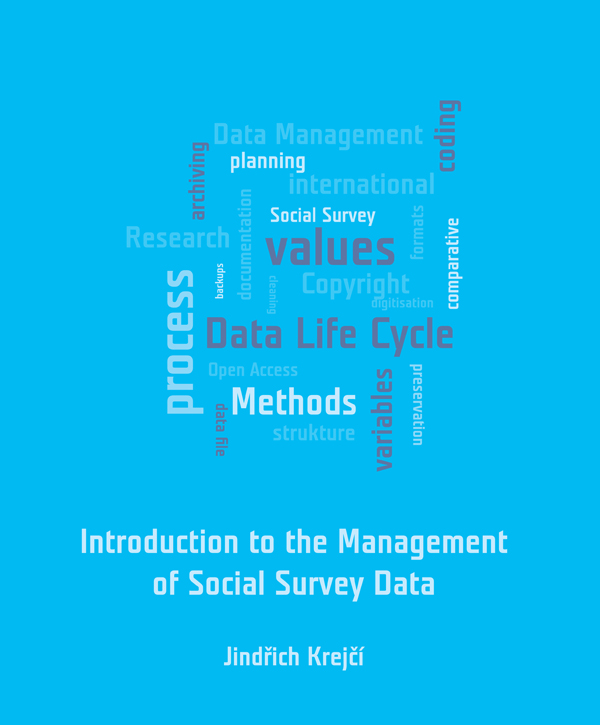Krejčí, Jindřich. 2014. Introduction to the Management of Social Survey Data. Praha: Sociologický ústav AV ČR, v.v.i.. 64 s. ISBN 978-80-7330-252-8.
Order Book Download PDF
Although the construction of databases, data processing, documentation and other operations with data may have a fundamental influence on research results, the management of data rarely receives attention as a separate subject in the methodology and practice of survey research. More often it gains attention only in the form of individual and isolated tasks during different stages of the research process. This, however, might pose a problem, because there are ample good reasons for paying attention to data management on a systematic and ongoing basis.
The quality of data management affects the quality of data and importantly determines the adequacy of research findings. This also applies at a more general level, namely to the building of a good environment for research work. Systematic data management is, above all, a necessary condition for preventing errors and false findings, but it can also save a lot of time and make research work both clearer and easier. An abundance of stories about ridiculous mistakes caused by analysing incorrect data circulate among researchers many analyses have failed because of flawed datasets and numerous researchers have spent long hours disentangling poorly documented data. Much research information has got lost due to disorder in datasets and a lack of effort in their documentation.
Higher demands are placed on data management, compared to independent research work, especially when we plan the long-term preservation and sharing of data between different research teams. In recent years, the requirements of archiving and providing open access to social science data for the purpose of secondary data analysis have become highly important parts of scientific work. Consequently, demands on professional data management have also risen. Moreover, such higher demands are not an end in itself they arise directly from new developments in empirical social research and methodology.
Authors
Department
Topics
Sociological Data
